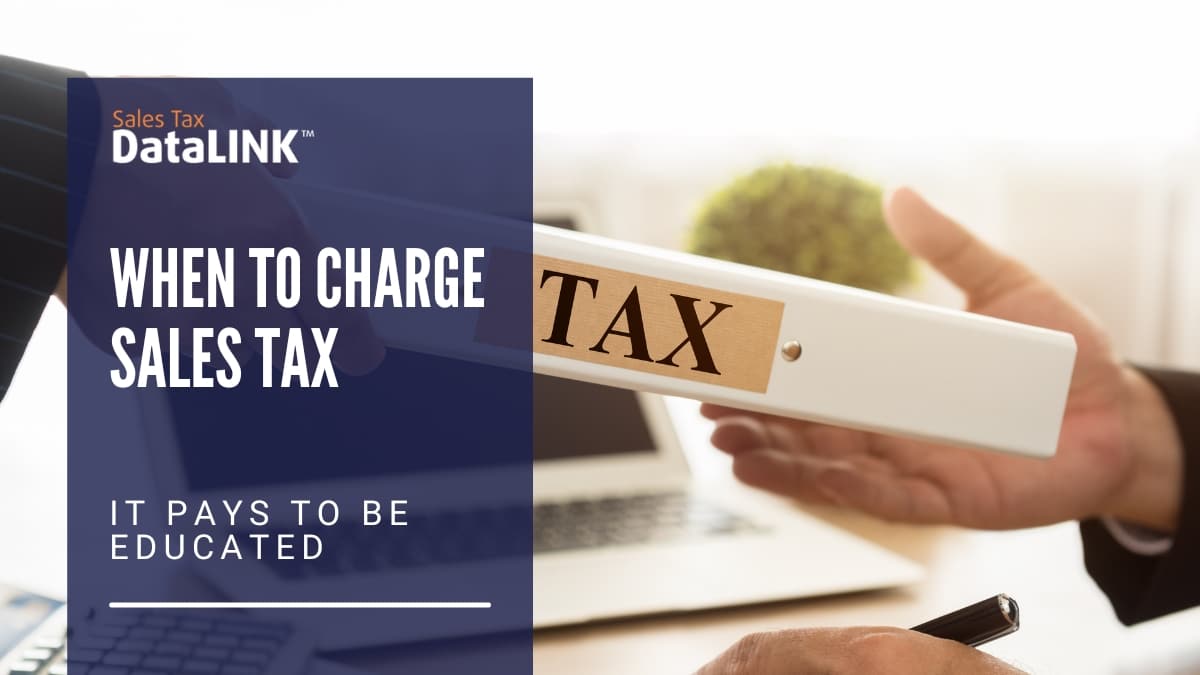Sales tax is determined on a per-sale basis. This means that every transaction must be examined to determine whether sales tax applies or not. Every state looks at sales tax differently and you are required to educate yourself on each state’s differing sales tax policies, and it pays to be in the know. E-retailers typically do business in multiple states and are responsible for knowing each and every sales tax policy that concerns their business in those states.
While in the past online sales were tax-exempt states have been routinely changing their policies to help ensure a fair market for both remote and physical retailers. To help determine if you should be charging sales tax on online sales ask yourself the following questions. Do I have a nexus in the state where the sale is taking place? Is the product subject to sales tax in that state? If so, is my customer exempt and have I received a valid exemption certificate? To answer the first question, you may need to review what it means to have nexus and how your business can create nexus through various activities.
Amazon FBA sellers need to keep up with Amazon’s recent changes when it comes to sales tax. If you haven’t already, find out if your state or states, where you have established nexus, have begun charging online sales tax. Drop shipping can also quickly complicate online sales tax. The second question can only be answered through individual research or speaking with a local sales tax expert. It is important to note that “not knowing” that a product or service is subject to sales tax does not excuse you from paying it. If you fail to pay proper sales tax and are audited you will face the same consequences as someone who willfully neglected their sales tax responsibilities. If you or your customer are exempt from sales tax make sure you file the correct, and accurate, exemption certificates.
Mistakes can often leave these certificates as void and you could be stuck paying sales tax you otherwise wouldn’t owe. So double-check the information on them to be sure. Why A Seller Would Be Charged Sales Tax If your vendors are charging you sales tax on the purchases you make from them, it means that you have not provided them with a resale certificate that is valid in the state where the property is sent or there was a drop shipping complication. In order to avoid being charged sales tax, your business must provide a valid resale certificate, and depending on the state there are three routes to take to do this. Provide the resale certificate from your ‘home’ state, Use the resale certificate form valid in the ship-to state but put your ‘home’ state registration number on the form, or Register in the ship-to state to obtain a valid registration number and provide the valid form to the supplier.
Even after providing all the correct paperwork you may find you still owe sales tax, depending on what in-state rules apply to you. Why A Buyer Would Be Charged Sales Tax If you were charged tax, it could mean that you did not provide your supplier with a valid resale certificate. If you have nexus in the ship-to-state then your business has sales tax liabilities and is obligated to collect and remit the tax due. In the future, you should provide your supplier with a valid resale certificate to avoid being charged tax. Here it may be less expensive to just pay the tax on the wholesale price of the goods you purchase from your supplier. Your supplier, assuming they have nexus in the ship-to-state, is obligated to charge you sales tax until you can satisfy the state’s requirement for providing a valid resale certificate.
Sales Tax DataLink offers helpful services and software to businesses looking to better understand sales tax compliance. Whether you’re new to the sales tax world or just want to brush up on things we offer free evaluations using our software and your data to identify any problem areas and provide outsourcing services if you want to focus on other aspects of your business.




